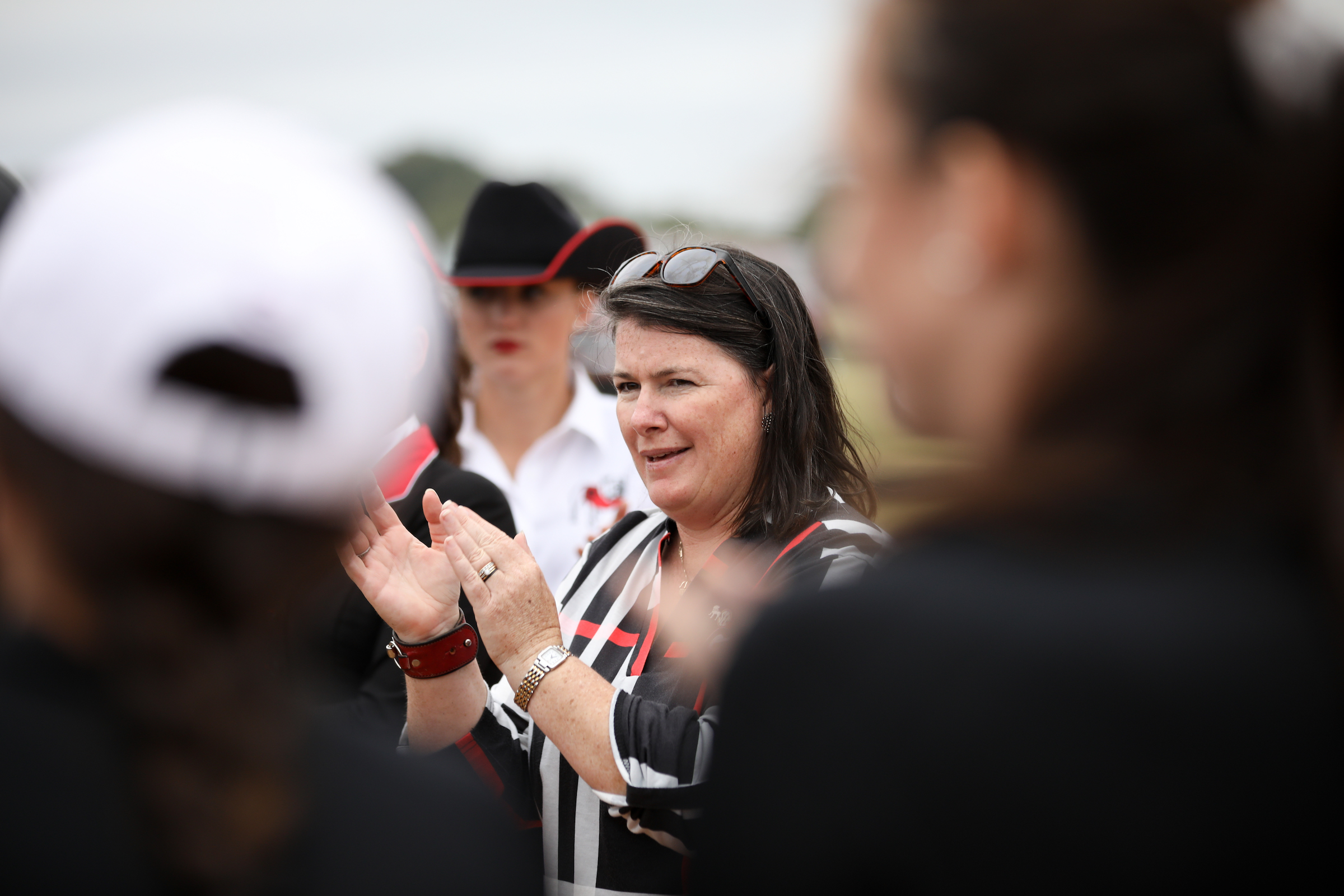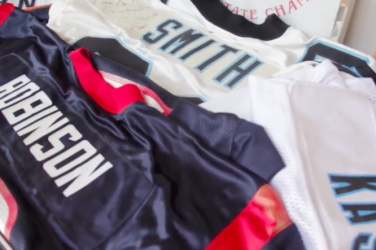University of Georgia equestrian coach Meghan Boenig and her staff set up an Excel spreadsheet soon after the COVID-19 pandemic ended the team’s season. Riders can sign up just to chat by phone or FaceTime. Boenig knows that her role is more than being just a coach to her riders, that with the title comes responsibility.
“That is one of the definitions of being a coach, you know, it is really and truly not just about an arena or about the competition,” Boenig said.
During this time of social distancing, the way in which humans interact and communicate has drastically changed. It’s no different for coaches, who normally work in close proximity with their athletes on a near-daily basis.
“Something that we’ve always done is talk about things that were possibly going on in their lives,” Boenig says. “Getting along with those little relationships and things we were talking about before all this happened, now it just adds a lot more color.”
Even coaches for fall sports have used this time to increase communication with their athletes. UGA women’s soccer coach Billy Lesesne was in constant contact with his players during the first few weeks of the pandemic, including more Zoom meetings. Lesesne now dedicates up to four hours a week for conversations with his athletes to discuss their future.
“We’re doing two [hours] with specific soccer content … and just check-in and, you know, talk about ideas for motivation,” Lesesne said.
Boenig has been taking care of her two young boys and a brand new puppy, all while her husband runs a small business from home. Amid the chaos, Boenig manages to make time for her athletes.
“They will do whatever,” senior rider Ali Tritschler said. “They want to be with us so badly. They are so open to talk to literally anyone any time, and I know that if I ever needed anything, I could like literally call one of them right now.”
As of March 30, the NCAA voted to allow schools to provide spring-sport student-athletes an additional season of competition and an extension of their period of eligibility. Unfortunately, this ruling did not include equestrian, meaning that senior riders have participated in their last meet without a proper sendoff.
Boenig said she feels for her seniors who had that chance taken away from them and is making changes from the norm to make sure her seniors get the appropriate last goodbye.
Instead of the usual year-end banquet, Boenig is orchestrating end-of-the-year awards and is working to have a special recognition to the senior class, along with other ways to celebrate her seniors.
We’re also looking at an alumni date to come back in the fall so that we can wrap our arms around each other and recognize this group, recognize this experience, and the season,” Boenig said.
To go along with the personal Zoom meetings to discuss the athletes’ welfare, coaches at UGA have also set up joint video conference meetings with the UGA Athletic Association’s Behavioral Medicine Program to talk about ways to keep their athletes’ mental health in a good state.
“They’re going over tools that they can use to deal with anything and just put a finger on the pulse as far as that goes,” said Manny Diaz, UGA men’s tennis coach.
There are, however, limitations on what coaches can make athletes do from home during this time. For their safety, riders can not record themselves on horseback or weight training to send in for feedback.
“The only encouragement that we all know every athlete is needing to think about is staying mentally, well, staying physically as well as they can,” Boenig said. “We can send them suggestions, our strength and conditioning trainer can send packets of information. But it’s entirely up to them and totally voluntary.”
Jose Chavez is a reporter for Grady Sports Bureau, which is part of the sports media program at the University of Georgia’s Grady College of Journalism and Mass Communication. Nick Finch, Alex Miller, and Tori Heck contributed to this story.







Show Comments (0)